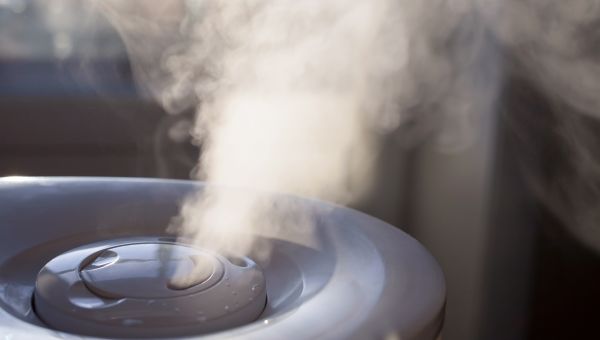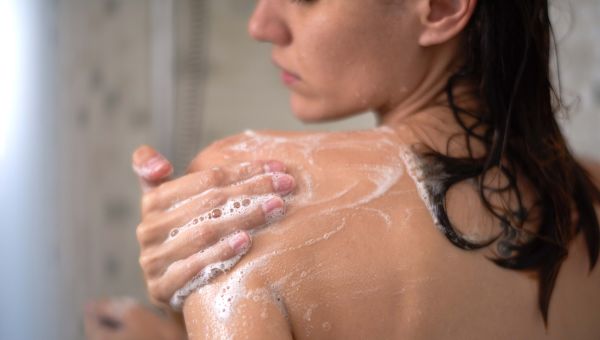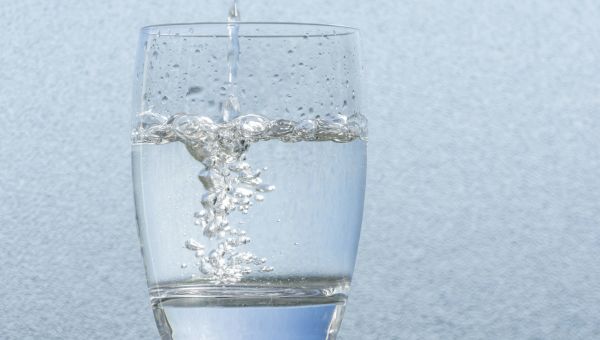6 ways to prevent dry skin
Keep your skin hydrated with these simple tips from a dermatologist.
Updated on January 25, 2023

Strong winds and freezing temperatures are all too common as the seasons transition to autumn and winter. The weather, along with dry indoor air, can wreak havoc on your skin. In addition, frequent hand washing and use of alcohol-based hand sanitizer, which can prevent the spread of COVID-19 and other illnesses, may leave hands more cracked and dehyrdated than normal.
“During the winter, you lose water through your skin and then your skin is less of a barrier to bacteria in the environment,” says dermatologist Margaret “Miggs” Muldrow, MD, of Presbyterian/St Luke’s Medical Center in Denver, Colorado. Your skin can become dry, inflamed, itchy or splotchy—and you can even break out with eczema.
With that in mind, here's how to treat dry skin, chapped lips, and more cold-weather skin issues.

Plug in a humidifier
When you’re blasting your home’s heat to keep your family warm, the humidity level in your home is likely going to drop. Low humidity levels can dry out your skin, but a humidifier will put moisture back in the air.
Place a humidifier your bed and close the door to that room to lock the moisture in. To keep the humidifier functioning properly, use distilled water, change the filters as directed, and clean it frequently. Keep an eye on your home’s humidity levels with a hygrometer or other thermostat device; a home humidity level of about 30 percent to 50 percent is ideal for your health.

Shower smart
While a steaming hot shower may sound good after trekking around in the cold, you may want to think twice. Hot water dries out the skin. Opt for warm water instead and try limiting your time in the shower to just 5 or 10 minutes.
Muldrow says to be mindful of how many showers you take per day, too. “It’s okay to shower daily, but a couple of showers a day is problematic.”

Use mild bathing products
It’s easy to get suckered into the greatest-smelling products, but perfumes and harsh chemicals in body wash and soaps can irritate your skin. “Stay away from anti-bacterial soaps and body washes with lots of fragrances,” says Muldrow.
While you can spend hours dissecting product ingredient lists, Muldrow says to remember that fragrance-free products with simple ingredients are best. Look for labels that say "dye-free" as well.

Moisturize right after you shower
Moisturizing daily is a wise idea, but the time of day you moisturize matters, too. Do it right after you take a shower or bath and after you’ve washed your hands or face. Ointments, creams and lotions can then trap existing moisture into your skin.
For patients with very dry skin, Muldrow recommends a wet wrap. “Soak in a tub of lukewarm water and don't add anything to the bathwater. Get out, barely dry off, and coat your skin with Vaseline, put on pajamas and go to bed.” She also says that cold-pressed virgin coconut oil can be used as a moisturizer, too. The oil’s antioxidants soften the skin and may even reduce the appearance of fine lines.

Hydrate with H20
Drinking an adequate amount of water may help your digestive system, blood circulation, kidney function, and waistline, but water also helps keep your skin cells hydrated. If your skin isn’t getting enough water, it may become dry and flaky. “It’s important you’re aware of the amount of fluids you’re getting, and to drink a lot of water, particularly in the wintertime,” says Muldrow.
But remember: Individual water needs vary depending on activity level, temperature, humidity, and medical conditions. For some people, especially those with certain kidney problems or people who take diuretics, drinking too much can be dangerous. Always talk with your healthcare provider before ramping up your intake.
That said, according to the Institute of Medicine, if you’re a healthy adult male living in a temperate climate, 3 liters (13 cups) of water a day should keep you hydrated. For healthy adult women? It’s about 2.2 liters (9 cups).
The recommended intake for all fluids—including those found in food—is 3.7 liters per day for men, and 2.7 for women. Food provides about 20 percent of your total requirement.

Don’t forget your lips
It happens every year come fall or winter—your lips dry out, and you end up licking them constantly. “Our lips are always in the sun and always exposed to the environment. They’re a very fragile part of the body because the skin is thinner,” says Muldrow. And as you get older, the shape of your mouth changes. “Saliva that tends to carry bacteria and yeast can pool up in the corners of your mouth, and that can cause irritation and inflammation.”
Muldrow suggests keeping your lip moisturizing routine pretty simple. Petroleum jelly or lanolin-based products are safe bets and if your lips seem really inflamed, you may need a topical steroid.
“You can start with over-the-counter one percent hydrocortisone, but if it’s not getting better, you’ll want to see your doctor for a prescription,” says Muldrow. If you feel a stinging or burning sensation after you apply, try a new product.

American Academy of Dermatology Association. Dermatologists’ Top Tips for Relieving Dry Skin. Accessed January 25, 2023.
U.S. Consumer Product Safety Commission. Dirty Humidifiers May Cause Health Problems. 2012.
Satheeshan KN, Seema BR, Meera Manjusha AV. Development of virgin coconut oil based body lotion. The Pharma Innovation Journal 2020; 9(5): 96-101.
Varma SR, Sivaprakasam TO, et al. In vitro anti-inflammatory and skin protective properties of Virgin coconut oil. Journal of Traditional and Complementary Medicine. January 2019. 9(1):5-14.
Centers for Disease Control and Prevention. Healthy Weight, Nutrition, and Physical Activity: Water and Healthier Drinks. Page last reviewed June 6, 2022.
Mayo Clinic. Water: How much should you drink every day? October 12, 2022.
Academy of Nutrition and Dietetics. How Much Water Do You Need? Reviewed June 13, 2022.
MedlinePlus. Aging changes in the face. Reviewed July 19, 2020.
American Academy of Dermatology Association. How to prevent and treat dry, chapped lips. January 26, 2021.
More On


video

article

slideshow


video


video
